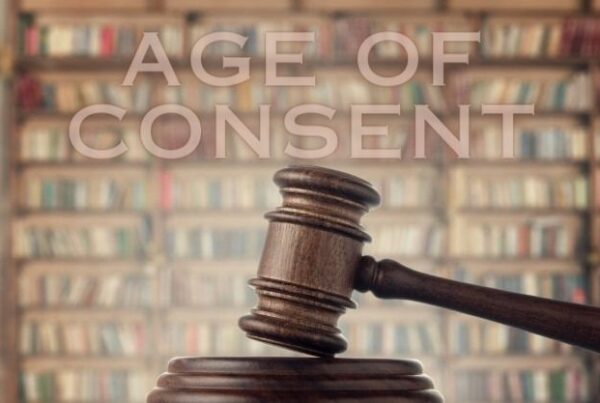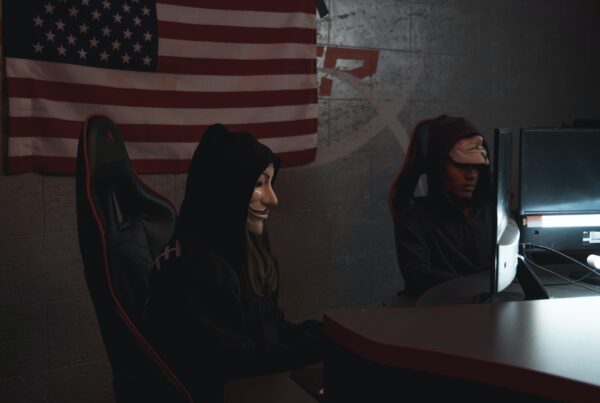Social media and messaging services form an integral part of our daily life, be it in the form of family groups, friend groups or groups formed with the purpose of work-related concerns. Although this feature of forming groups provided by platforms such as WhatsApp and Telegram has allowed for increased connectivity amongst friends and colleagues, people often share objectionable and even outright illegal material. In such a situation, the administrators may also end up being associated with the member who posted the material. Thus, a common concern that arises is that if a member of such a group post something that could be objectionable or deemed illegal, such as abusive language directed at someone, whether administrators of the group could also face any legal repercussions despite not posting or supporting the material themselves.
While discussing whether a group administrator could be held accountable for objectionable content posted by a group member, it is also important to discuss the concept of vicarious liability. The imposition of a vicarious liability means that a person takes the place of another with regards to his liability because of their relationship and is treated as the person has committed the act himself. Making administrators responsible for the actions of the group members would lead to vicarious liability being imposed upon them.
The Delhi High Court in the case of Ashish Bhalla v. Suresh Chawdhary[1] considered the administrator of the group to not by liable for allegedly defamatory material posted by group members as it would be akin to making manufacturer of a newsprint liable for the defamatory material published in it.
The question as to whether an administrator of a WhatsApp group could be held responsible for the content posted by a member of the group was dealt with at length by the Bombay High Court in the case of Kishor Tarone v. State of Maharashtra[2]. In this case, which involved sexual and abusive language used against a woman by one of the members, the administrator was facing charges of sexual harassment, words outraging modesty of a woman, abetment of the same, as well as well as publishing sexually explicit conduct. The administrator had not removed the member as well. With regards to accusations of sexual harassment and outraging modesty, the Court observed that the administrator himself did not post anything and neither did he abet the same simply by fact of being the administrator. It was thus held that the administrator cannot be held vicariously liable for an act of a member of the Group, who posts objectionable content, unless it is shown that there was common intention or pre-arranged plan.
Following Bombay High Court’s Judgment in Kishore Tarone case, the Madras High Court, in its judgment in the case of R. Rajendran v. the Inspector of Police[3], also held that the administrator could not be made vicariously liable for criminal acts of members. The Court further directed the investigating officer to delete the name of the WhatsApp group administrator while filing final report if his role is merely of an administrator and nothing else. The Court also observed that when a person creates a WhatsApp group, he cannot be expected to presume or to have advance knowledge of the criminal acts of the member of the group.
The Kerala High Court also analyzed the applicability of vicarious liability to WhatsApp group administrators in the case of Manual v. State of Kerala[4]. This case involved the sharing of child pornography by one of the members, for which the administrator was also facing charges. The Court observed that as a general rule; a person can only be criminally liable for the acts of another if they are a party to the offence, vicarious liability however, is an exception to the same. Although in order for vicarious liability to apply in a criminal context, it should specifically be provided for in the statute. In the present context of an administrator being held responsible for criminal acts of group members, no vicarious liability was provided for. The Kerala High Court thus also held that the administrator cannot be held vicariously liable for an act of a member of the Group, who posts objectionable content, unless it is shown that there was common intention or pre-arranged plan.
This aspect may also be considered from the angle of intermediary liability under The Information Technology Act 2000. The term ‘Intermediary’ as defined under Section 2 of the IT Act, refers to any person who on behalf of another person receives or stores or transmits that record or provides any service with respect to such record. In cases including but not limited to the Manual versus State of Kerala case, whereunder courts have assessed the liability of the admin of a WhatsApp group in the backdrop of the definition of intermediary, the admin was not found to have met the threshold of the definition under the IT Act. Previously, in the matter of Avnish Bajaj versus State of (NCT) of Delhi, the Apex Court whilst determining the vicarious liability of the Managing Director of a Company qua listing of an obscene MMS on the company’s website, had held that as the Indian Penal Code did not recognise the concept of automatic criminal liability of a director of a company when the company itself was not mentioned in the charge-sheet, the Managing Director ought not to be held liable for offences requiring men rea or strict liability.
Conclusion
The precedent set by cases pertaining to the question of the liability of an administrator of a group created on any messaging service or social media site thus far shows that he bears no liability for any acts committed by the members if there was no common intention or pre-arranged plan.
However, the administrator must be mindful not to engage with the objectionable posts in a way that may indicate that he supports it, so as to conclusively show lack of common intention.
Although removal of the member posting the material is also not required to show non-involvement considering the Bombay High Court’s judgement in the Kishore Tarone case, doing so would still assist in ensuring that a lack of involvement is conclusively shown.
Furthermore, WhatsApp also presently possesses a function that allows administrators to delete another member’s message for the entire group within two days of the message being posted. Deleting the objectionable content at the earliest would not only help in dissuading presence of common intent, but from a practical perspective, would lower the possibility of legal action from occurring in the first place.
Social media and messaging services form an integral part of our daily life, be it in the form of family groups, friend groups or groups formed with the purpose of work-related concerns. Although this feature of forming groups provided by platforms such as WhatsApp and Telegram has allowed for increased connectivity amongst friends and colleagues, people often share objectionable and even outright illegal material. In such a situation, the administrators may also end up being associated with the member who posted the material. Thus, a common concern that arises is that if a member of such a group post something that could be objectionable or deemed illegal, such as abusive language directed at someone, whether administrators of the group could also face any legal repercussions despite not posting or supporting the material themselves.
While discussing whether a group administrator could be held accountable for objectionable content posted by a group member, it is also important to discuss the concept of vicarious liability. The imposition of a vicarious liability means that a person takes the place of another with regards to his liability because of their relationship and is treated as the person has committed the act himself. Making administrators responsible for the actions of the group members would lead to vicarious liability being imposed upon them.
The Delhi High Court in the case of Ashish Bhalla v. Suresh Chawdhary[1] considered the administrator of the group to not by liable for allegedly defamatory material posted by group members as it would be akin to making manufacturer of a newsprint liable for the defamatory material published in it.
The question as to whether an administrator of a WhatsApp group could be held responsible for the content posted by a member of the group was dealt with at length by the Bombay High Court in the case of Kishor Tarone v. State of Maharashtra[2]. In this case, which involved sexual and abusive language used against a woman by one of the members, the administrator was facing charges of sexual harassment, words outraging modesty of a woman, abetment of the same, as well as well as publishing sexually explicit conduct. The administrator had not removed the member as well. With regards to accusations of sexual harassment and outraging modesty, the Court observed that the administrator himself did not post anything and neither did he abet the same simply by fact of being the administrator. It was thus held that the administrator cannot be held vicariously liable for an act of a member of the Group, who posts objectionable content, unless it is shown that there was common intention or pre-arranged plan.
Following Bombay High Court’s Judgment in Kishore Tarone case, the Madras High Court, in its judgment in the case of R. Rajendran v. the Inspector of Police[3], also held that the administrator could not be made vicariously liable for criminal acts of members. The Court further directed the investigating officer to delete the name of the WhatsApp group administrator while filing final report if his role is merely of an administrator and nothing else. The Court also observed that when a person creates a WhatsApp group, he cannot be expected to presume or to have advance knowledge of the criminal acts of the member of the group.
The Kerala High Court also analyzed the applicability of vicarious liability to WhatsApp group administrators in the case of Manual v. State of Kerala[4]. This case involved the sharing of child pornography by one of the members, for which the administrator was also facing charges. The Court observed that as a general rule; a person can only be criminally liable for the acts of another if they are a party to the offence, vicarious liability however, is an exception to the same. Although in order for vicarious liability to apply in a criminal context, it should specifically be provided for in the statute. In the present context of an administrator being held responsible for criminal acts of group members, no vicarious liability was provided for. The Kerala High Court thus also held that the administrator cannot be held vicariously liable for an act of a member of the Group, who posts objectionable content, unless it is shown that there was common intention or pre-arranged plan.
This aspect may also be considered from the angle of intermediary liability under The Information Technology Act 2000. The term ‘Intermediary’ as defined under Section 2 of the IT Act, refers to any person who on behalf of another person receives or stores or transmits that record or provides any service with respect to such record. In cases including but not limited to the Manual versus State of Kerala case, whereunder courts have assessed the liability of the admin of a WhatsApp group in the backdrop of the definition of intermediary, the admin was not found to have met the threshold of the definition under the IT Act. Previously, in the matter of Avnish Bajaj versus State of (NCT) of Delhi, the Apex Court whilst determining the vicarious liability of the Managing Director of a Company qua listing of an obscene MMS on the company’s website, had held that as the Indian Penal Code did not recognise the concept of automatic criminal liability of a director of a company when the company itself was not mentioned in the charge-sheet, the Managing Director ought not to be held liable for offences requiring men rea or strict liability.
Conclusion
The precedent set by cases pertaining to the question of the liability of an administrator of a group created on any messaging service or social media site thus far shows that he bears no liability for any acts committed by the members if there was no common intention or pre-arranged plan.
However, the administrator must be mindful not to engage with the objectionable posts in a way that may indicate that he supports it, so as to conclusively show lack of common intention.
Although removal of the member posting the material is also not required to show non-involvement considering the Bombay High Court’s judgement in the Kishore Tarone case, doing so would still assist in ensuring that a lack of involvement is conclusively shown.
Furthermore, WhatsApp also presently possesses a function that allows administrators to delete another member’s message for the entire group within two days of the message being posted. Deleting the objectionable content at the earliest would not only help in dissuading presence of common intent, but from a practical perspective, would lower the possibility of legal action from occurring in the first place.
Social media and messaging services form an integral part of our daily life, be it in the form of family groups, friend groups or groups formed with the purpose of work-related concerns. Although this feature of forming groups provided by platforms such as WhatsApp and Telegram has allowed for increased connectivity amongst friends and colleagues, people often share objectionable and even outright illegal material. In such a situation, the administrators may also end up being associated with the member who posted the material. Thus, a common concern that arises is that if a member of such a group post something that could be objectionable or deemed illegal, such as abusive language directed at someone, whether administrators of the group could also face any legal repercussions despite not posting or supporting the material themselves.
While discussing whether a group administrator could be held accountable for objectionable content posted by a group member, it is also important to discuss the concept of vicarious liability. The imposition of a vicarious liability means that a person takes the place of another with regards to his liability because of their relationship and is treated as the person has committed the act himself. Making administrators responsible for the actions of the group members would lead to vicarious liability being imposed upon them.
The Delhi High Court in the case of Ashish Bhalla v. Suresh Chawdhary[1] considered the administrator of the group to not by liable for allegedly defamatory material posted by group members as it would be akin to making manufacturer of a newsprint liable for the defamatory material published in it.
The question as to whether an administrator of a WhatsApp group could be held responsible for the content posted by a member of the group was dealt with at length by the Bombay High Court in the case of Kishor Tarone v. State of Maharashtra[2]. In this case, which involved sexual and abusive language used against a woman by one of the members, the administrator was facing charges of sexual harassment, words outraging modesty of a woman, abetment of the same, as well as well as publishing sexually explicit conduct. The administrator had not removed the member as well. With regards to accusations of sexual harassment and outraging modesty, the Court observed that the administrator himself did not post anything and neither did he abet the same simply by fact of being the administrator. It was thus held that the administrator cannot be held vicariously liable for an act of a member of the Group, who posts objectionable content, unless it is shown that there was common intention or pre-arranged plan.
Following Bombay High Court’s Judgment in Kishore Tarone case, the Madras High Court, in its judgment in the case of R. Rajendran v. the Inspector of Police[3], also held that the administrator could not be made vicariously liable for criminal acts of members. The Court further directed the investigating officer to delete the name of the WhatsApp group administrator while filing final report if his role is merely of an administrator and nothing else. The Court also observed that when a person creates a WhatsApp group, he cannot be expected to presume or to have advance knowledge of the criminal acts of the member of the group.
The Kerala High Court also analyzed the applicability of vicarious liability to WhatsApp group administrators in the case of Manual v. State of Kerala[4]. This case involved the sharing of child pornography by one of the members, for which the administrator was also facing charges. The Court observed that as a general rule; a person can only be criminally liable for the acts of another if they are a party to the offence, vicarious liability however, is an exception to the same. Although in order for vicarious liability to apply in a criminal context, it should specifically be provided for in the statute. In the present context of an administrator being held responsible for criminal acts of group members, no vicarious liability was provided for. The Kerala High Court thus also held that the administrator cannot be held vicariously liable for an act of a member of the Group, who posts objectionable content, unless it is shown that there was common intention or pre-arranged plan.
This aspect may also be considered from the angle of intermediary liability under The Information Technology Act 2000. The term ‘Intermediary’ as defined under Section 2 of the IT Act, refers to any person who on behalf of another person receives or stores or transmits that record or provides any service with respect to such record. In cases including but not limited to the Manual versus State of Kerala case, whereunder courts have assessed the liability of the admin of a WhatsApp group in the backdrop of the definition of intermediary, the admin was not found to have met the threshold of the definition under the IT Act. Previously, in the matter of Avnish Bajaj versus State of (NCT) of Delhi, the Apex Court whilst determining the vicarious liability of the Managing Director of a Company qua listing of an obscene MMS on the company’s website, had held that as the Indian Penal Code did not recognise the concept of automatic criminal liability of a director of a company when the company itself was not mentioned in the charge-sheet, the Managing Director ought not to be held liable for offences requiring men rea or strict liability.
Conclusion
The precedent set by cases pertaining to the question of the liability of an administrator of a group created on any messaging service or social media site thus far shows that he bears no liability for any acts committed by the members if there was no common intention or pre-arranged plan.
However, the administrator must be mindful not to engage with the objectionable posts in a way that may indicate that he supports it, so as to conclusively show lack of common intention.
Although removal of the member posting the material is also not required to show non-involvement considering the Bombay High Court’s judgement in the Kishore Tarone case, doing so would still assist in ensuring that a lack of involvement is conclusively shown.
Furthermore, WhatsApp also presently possesses a function that allows administrators to delete another member’s message for the entire group within two days of the message being posted. Deleting the objectionable content at the earliest would not only help in dissuading presence of common intent, but from a practical perspective, would lower the possibility of legal action from occurring in the first place.
[1] Ashish Bhalla vs. Suresh Chawdhary and Ors. (29.11.2016 – DELHC) : MANU/DE/3534/2016
[2] Kishor vs. The State of Maharashtra and Ors. (01.03.2021 – BOMHC) : MANU/MH/1092/2021
[3] R. Rajendran v. the Inspector of Police and Another, 2022 Crl. O.P. (MD)No. 8010 of 2021
[4] Manual v. State of Kerala, 2022 SCC OnLine Ker 990




